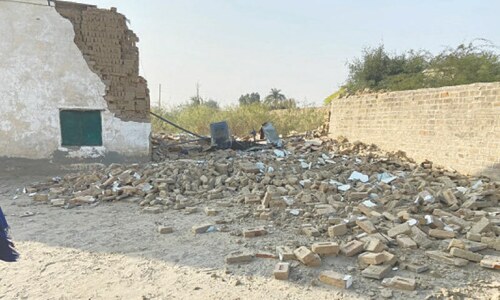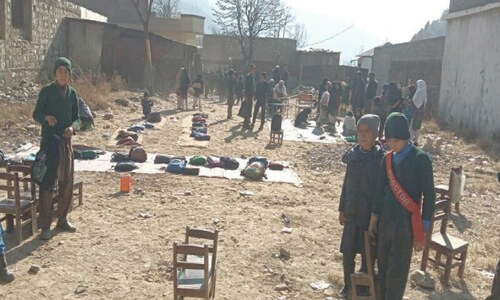PESHAWAR: The Khyber Pakhtunkhwa cabinet has approved the “Right of Digital Way Policy” to increase internet usage in the province.
KP is the first province in the country to have that policy, which is aligned with the Federal Public and Private Right of (Digital) Way Policy Directive, 2021, said adviser to the provincial chief minister on information Barrister Mohammad Ali Saif.
The policy approval came during the cabinet’s meeting on Thursdaynight that was chaired by Chief Minister Ali Amin Khan Gandapur, according to a statement issued by the CM’s Secretariat here on Friday.
It added that the government had planned the laying of optical fibre in different areas of the province, and the Right of Digital Way Policy would give a “clear picture” on the fee and repairs of roads damaged during the laying of the optical fibre.
Rs1.15bn Eid Package for 115,000 people also approved
“This policy will provide a framework to facilitate the deployment of fibre connectivity through prompt resolution of public and private right-of-way issues commonly faced by telecom operators, thereby leading to an increase in fibre connectivity.”
The aide to the CM said there were issues among different government departments about the laying of fibre cable and repair of the damaged infrastructure, but they all would be settled before the laying of optical fibre.
He said the cabinet formed a committee comprising ministers and secretaries of the construction and work, irrigation, and local government departments to adopt the policy “in a unified manner throughout the province.”
Mr Saif said the cabinet also approved draft rules for the post of the Pedo chief executive officer and members of the executive committee (terms and conditions), the borrowing of $30 million from the Saudi Fund for Development for financing the reconstruction of infrastructure in the Malakand region, the retention of 100 BPS-17 head nurses in the province’s medical teaching institutions, and the purchase of gadgets and equipment for the police in tribal districts.
The participants endorsed the caretaker cabinet’s decision to increase the rate of infrastructure development cess under Section 3 of the Khyber Pakhtunkhwa Infrastructure Development Cess Act, 2022.
They also decided to “realign KP’s stand with other provinces regarding the share of repaying the previously secured loan amounting to $88.673 million (from the total secured previous loan of $487 million” and take it to the Council of Common Interest in line with the agreement shown by the rest of the provinces, according to the official statement.
The cabinet approved the release of Rs1.15 billion funds as an Eid Package for 115,000 poor people of ine province, Rs10,000 for each family, saying the package will also include the families of the martyred police officials to whom the money will be given away directly by the police department.
It formed another committee to categorise within 15 days the posts for which recruitment is to be done through the Educational Testing and Evaluation Agency or the relevant technical departments and organisations.
The cabinet directed all provincial departments and organisations to obtain no objection certifications from that testing agency before conducting screening tests for recruitment through private organisations other than it.
It approved the Zone Development Agreement for the Pakistan Digital City Haripur project, the first purpose-built special technology zone in the country being developed by the KP Information Technology Board under the administration of the science and technology and information technology department.
The project has already secured a licence from the special technology zones authority, and after the approval of the agreement by the cabinet, incentives could be extended to zone developers bringing considerable growth to their economies through improvements in their IT exports, according to the statement.
The cabinet formed a committee to look into the grievances of the officers of the attached departments and the directives of the Peshawar High Court for “reducing disparities” in the salaries of the officers of the attached departments and other cadres.
On a petition filed by over 973 officers of different attached departments, the court directed the government to address their grievances about the grant of allowances to them as given away to officers of other cadres in light of Article 38(e) of the Constitution and the principle of policy as provided in Article 29(2), and to remove disparity and discrimination among civil servants.
The finance department opposed the demand on the grounds of resource crunch and financial crises in the province, according to the statement. It put the demand’s annual financial implications at around Rs971 million.
Published in Dawn, March 30th, 2024















































Dear visitor, the comments section is undergoing an overhaul and will return soon.